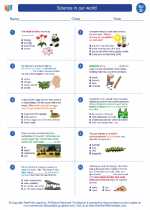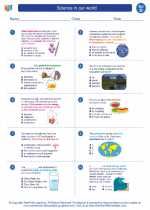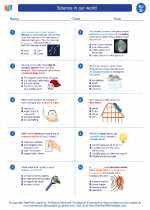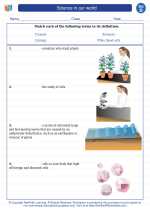Metamorphism
Metamorphism is the process of transformation of pre-existing rocks (igneous, sedimentary, or other metamorphic rocks) due to changes in temperature, pressure, and chemical environment. This process occurs deep within the Earth's crust where rocks are subjected to intense heat and pressure, causing them to undergo physical and chemical changes.
Types of Metamorphism
There are two main types of metamorphism:
- Regional Metamorphism: This type occurs over a large area and is associated with tectonic processes such as mountain building and plate collisions. It results in the formation of foliated rocks like slate, schist, and gneiss.
- Contact Metamorphism: This type occurs when rocks are in contact with magma, leading to localized changes in the rock due to the high temperatures. It often results in the formation of non-foliated rocks like marble and quartzite.
Factors Affecting Metamorphism
The process of metamorphism is influenced by several factors:
- Temperature: Higher temperatures facilitate chemical reactions and recrystallization of minerals within the rock.
- Pressure: Increased pressure can cause the minerals in the rock to reorient themselves and become more compact.
- Chemical Fluids: The presence of fluids such as water and dissolved ions can aid in the exchange of elements between minerals, leading to the formation of new minerals.
- Time: The longer the rocks are subjected to metamorphic conditions, the more pronounced the changes will be.
Effects of Metamorphism
Metamorphism can result in various changes in the rocks, including:
- Recrystallization of minerals
- Development of foliation or banding
- Formation of new minerals through chemical reactions
- Changes in texture and structure
Study Guide
To understand metamorphism, it's important to focus on the following key points:
- Define metamorphism and explain its significance in the rock cycle.
- Identify the differences between regional and contact metamorphism, and provide examples of rocks formed by each type.
- Discuss the factors that influence the process of metamorphism, including temperature, pressure, chemical fluids, and time.
- Describe the effects of metamorphism on the physical and chemical characteristics of rocks.
- Compare and contrast metamorphic rocks with other types of rocks (igneous and sedimentary) in terms of their formation processes and properties.
◂Science Worksheets and Study Guides Fourth Grade. Science in our world
Study Guide Science in our world - 4th gr.
Science in our world - 4th gr.  Worksheet/Answer key
Worksheet/Answer key Science in our world - 4th gr.
Science in our world - 4th gr.  Worksheet/Answer key
Worksheet/Answer key Science in our world - 4th gr.
Science in our world - 4th gr.  Worksheet/Answer key
Worksheet/Answer key Science in our world - 4th gr.
Science in our world - 4th gr.  Vocabulary/Answer key
Vocabulary/Answer key Science in our world - 4th gr.
Science in our world - 4th gr. 

 Worksheet/Answer key
Worksheet/Answer key
 Worksheet/Answer key
Worksheet/Answer key
 Worksheet/Answer key
Worksheet/Answer key
 Vocabulary/Answer key
Vocabulary/Answer key

The resources above cover the following skills:
History and Nature of Science: A student should understand the history and nature of science. A student who meets the content standard should:
Develop an understanding that historical perspectives of scientific explanations demonstrate that scientific knowledge changes over time, building on prior knowledge.
Develop an understanding that scientific knowledge is ongoing and subject to change as new evidence becomes available through experimental and/or observational confirmation(s).